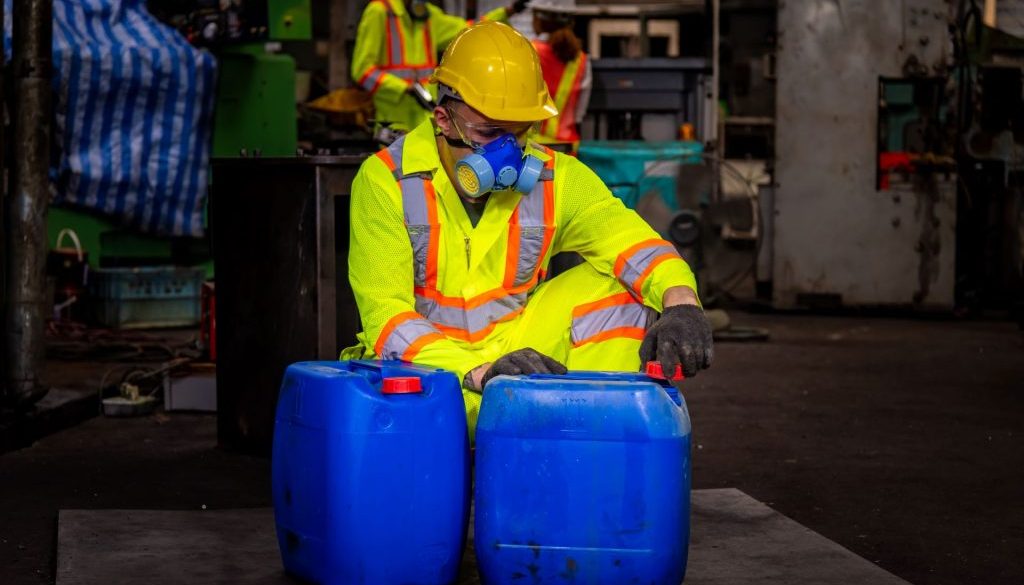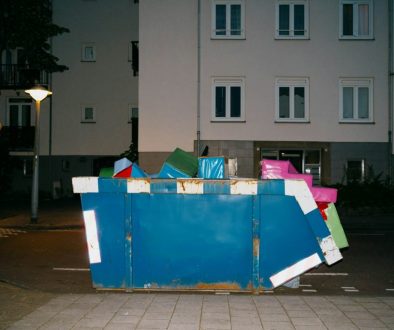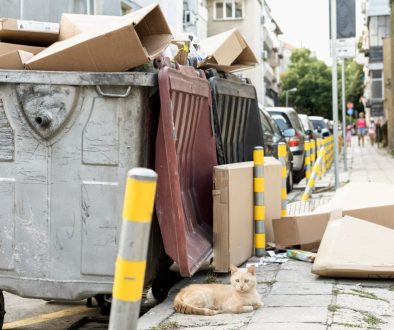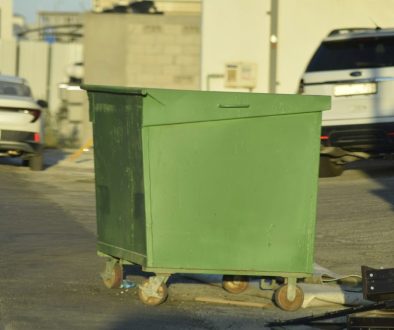Identifying hazardous waste is the first crucial step towards proper disposal. Many common household and business items can be classified as hazardous, from cleaning products and pesticides to industrial chemicals and medical waste. Understanding the warning signs and familiarising yourself with the types of hazardous materials you may encounter is key to managing them effectively.
Once hazardous waste has been identified, safe storage practices become paramount. Proper containment, labelling, and storage conditions can significantly reduce the risks associated with these materials, protecting people and the environment from potential harm. By following industry-recommended guidelines, you can ensure that your hazardous waste is stored securely until it can be disposed of properly.
Ultimately, the responsible disposal of hazardous waste is a shared responsibility that requires a multi-faceted approach. From utilising household hazardous waste collection programs and recycling initiatives to engaging the services of specialised disposal facilities, there are various options available to ensure your waste is handled in a safe and environmentally-conscious manner.
Identifying Hazardous Waste in Your Home or Business
Identifying hazardous waste is the first step towards proper disposal. Many common household or business items can be classified as hazardous. Knowing what to look for can help you manage these materials safely.
Common Household Hazardous Waste:
1. Cleaning Products: Items like bleach, oven cleaners, and drain cleaners contain harmful chemicals.
2. Pesticides and Fertilisers: These can be toxic to humans and animals and harmful to the environment.
3. Paint and Solvents: Old paint, paint thinners, and solvents can release harmful vapours and are flammable.
4. Batteries: Household and automotive batteries contain heavy metals that can contaminate soil and water.
5. Electronics: Items like computers, phones, and televisions can contain hazardous materials and should not be thrown away with regular rubbish.
Common Business Hazardous Waste:
1. Industrial Chemicals: Many businesses use chemicals in their processes that can be toxic or reactive.
2. Construction Materials: Items like asbestos, lead-based paint, and certain adhesives can be hazardous.
3. Medical Waste: Clinics and hospitals generate waste like used needles and expired medications that require special handling.
Proper identification involves reading labels and understanding the potential hazards of each material. Look for warning symbols such as skulls and crossbones, flames, or corrosion signs. When in doubt, consult material safety data sheets (MSDS) or seek professional advice.
Safe Storage Practices for Hazardous Waste
Once you’ve identified hazardous waste, proper storage is crucial to minimise risks. Safe storage practices prevent accidents, spills, and contamination.
Containers:
1. Use Appropriate Containers: Store hazardous waste in containers designed for that specific type of material. For example, use metal containers for flammable liquids.
2. Seal Containers Properly: Ensure lids are tightly sealed to prevent leaks and spills. Consider using secondary containment, like a tray or basin, to catch any potential leaks.
Labelling:
1. Clearly Label All Containers: Use waterproof labels to indicate the contents and any hazards. Include the date of storage to track how long materials have been stored.
2. Colour Coding: Implement a colour-coding system to identify types of hazardous waste and their associated risks quickly.
Storage Area:
1. Designate a Storage Area: Keep hazardous waste in a designated, well-ventilated area away from living or working spaces.
2. Away from Ignition Sources: Store flammable materials at least three metres away from sources of ignition, such as heaters or stoves.
3. Temperature Control: Some hazardous materials require specific temperature conditions. Ensure your storage area meets these requirements.
By following these safe storage practices, you can greatly reduce the risks associated with hazardous waste. Proper storage not only protects people and the environment but also makes the eventual disposal process more manageable.
Methods for Disposing of Hazardous Waste Properly
Disposing of hazardous waste properly is essential to protect human health and the environment. Inappropriate disposal can lead to contamination of soil, water, and air, causing severe consequences. Here are some effective methods for disposing of hazardous waste:
1. Household Hazardous Waste Collection Programs: Many local governments offer special collection days or designated drop-off locations for hazardous household waste. Check with your local council or waste management authority for information on these programmes.
2. Recycling: Some hazardous materials can be recycled safely. For example, automotive batteries, used oil, and certain electronics can often be taken to recycling centres. Contact the recycling centre beforehand to ensure they accept the type of waste you have.
3. Specialised Disposal Facilities: There are facilities specifically designed to handle hazardous waste. These facilities use advanced technologies to treat, neutralise, or dispose of hazardous materials safely. Look online or contact local waste authorities to find a facility near you.
4. Pharmacy Take-Back Programmes: Many pharmacies offer take-back programmes for disposing of expired or unwanted medications. These programmes ensure that medications are disposed of in a way that prevents harm to people and the environment.
5. Charity and Reuse: Some items, like certain paints and chemicals, may still be usable. Charitable organisations or community groups might accept these items if they are in good condition.
6. Hire a Professional Service: For large quantities or highly dangerous waste, hiring a professional hazardous waste disposal service is often the safest and most efficient option.
Always follow local regulations and guidelines when disposing of hazardous waste. Proper disposal is not just a legal requirement but a moral responsibility to safeguard our communities and the environment.
Benefits of Hiring Professional Hazardous Waste Disposal Services
Hiring professional hazardous waste disposal services can offer significant benefits, ensuring that waste is handled efficiently and safely. Here are some advantages of relying on experts:
1. Expert Knowledge and Experience: Professionals are trained in identifying, handling, and disposing of hazardous waste. They understand the complexities of different materials and know the best practices to minimise risks.
2. Safety: Handling hazardous waste can be dangerous. Professionals use specialised equipment and procedures to ensure the safety of everyone involved. They minimise the risk of accidents, spills, and exposure to harmful substances.
3. Compliance with Regulations: Hazardous waste disposal is governed by strict laws and regulations. Professional services stay updated with local and national guidelines, ensuring that your waste is disposed of legally and correctly.
4. Environmental Protection: Professionals use methods that reduce environmental impact. They ensure that hazardous waste is treated or disposed of in ways that prevent contamination of natural resources.
5. Convenience: Managing hazardous waste can be time-consuming and complicated. Hiring a professional service frees you from the burden, allowing you to focus on other important tasks.
6. Cost-Effective: Although hiring professionals involves a fee, it can save money in the long run. Improper disposal can lead to hefty fines and clean-up costs. Professionals help you avoid these expenses by ensuring everything is done right.
7. Efficient Service: Professional disposal services are equipped to handle hazardous waste quickly and efficiently. They have the resources and processes in place to manage even large volumes of waste without delay.
Considering these benefits, it’s clear that hiring a professional hazardous waste disposal service is often the best choice for both safety and peace of mind.
Navigating Hazardous Waste:
Managing hazardous waste responsibly is crucial for protecting our health, our communities, and the environment. Recognising hazardous materials in our homes and businesses and ensuring they are stored safely helps prevent accidents and contamination.
When it comes to disposal, following designated programmes, recycling when possible, and using specialised facilities are vital steps.
For all your hazardous waste disposal needs in the UK, Enviro Skip Hire is here to help. Contact us today to ensure your waste is handled safely and responsibly, contributing to a cleaner, greener future.




